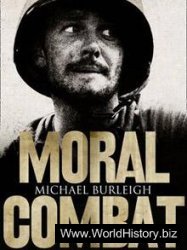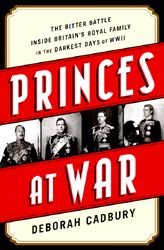1840's Old Jewish dream of resettling in Palestine is rekindled.
1881 Russian educator Eliezer Ben Yehuda settles in Palestine and resurrects Hebrew language.
1882 Settlements of Russian-Jewish farmers begin forming in Ottoman-administered Palestine.
1882 First Aliyah (ascending) begins with immigration of 12,000 Russian refugees to
Palestine.
1885 Austrian journalist Theodor Herzl publishes article promoting Jewish homeland
As solution to anti-Semitism in Europe.
1897 Jewish communal farms, financed by Lord Rothschild, begin forming in Palestine.
1897 (Aug. 29) Modern Zionist movement is launched at first World Zionist Congress
In Switzerland.
1901 Jewish National Fund is founded to buy land in Palestine for Zionists.
1904 Second Aliyah begins as more Jews escape from Russia and Poland.
1909 Tel Aviv, first modern Jewish city, is founded in Palestine.
1917 Balfour Declaration promises British help to establish Jewish homeland in
Palestine at end of World War I in return for loans from Jewish banking houses.
1917 British forces capture Palestine from Ottoman Empire during World War I; T. E.
Lawrence promises Arabs their independence in return for help against Ottomans.
In 1920 the League of Nations awarded Palestine to the British as a mandate. British officials agreed to administer the area for ten years, during which time they would prepare the people of the area for independence. The British mandate officials, in accordance with the Balfour Declaration, began permitting large-scale Jewish emigration to Palestine but placed limits on the number of Jews who could enter the mandate each year.
Almost immediately violence erupted between the Jewish settlers and the Muslim inhabitants of the area. The violence escalated during the period between the two world wars, with both sides forming paramilitary organizations to prosecute what became an undeclared war. The British found themselves caught in the middle and often became the target of both Palestinian and Jewish guerrilla organizations.
In 1937 a British investigatory committee concluded that the
1918 (Nov.) World War I ends with about 60,000 Jews living in Palestine.
1919-1939 Jews from around the world emigrate to Palestine with British aid; violence
Periodically erupts between them and Arab Palestinians.
1919 Third Aliyah begins with 20,000 immigrants from Russia and Poland settling in Palestine, forming underground Jewish resistance army known as Hagganah.
1920 League of Nations grants Great Britain mandate to govern Palestine.
1921 Britain angers Zionists by dividing its mandate territory into Transjordan and Palestine portions; first British census of Palestine counts 84,000 Jews (12.9 percent of population).
1924 Fourth Aliyah brings 80,000 more Jews to Palestine.
1929 Guerrilla army Irgun is formed by future premier Menachem Begin and other
Jewish settlers.
1933 (Jan.) Nazi rise to power in Germany begins intense pressure on European Jews,
Many of whom emigrate to Palestine—some with German help.
1939-1945 World War II is fought in Europe.
1939 British White Paper states that Palestine should not be partitioned between Jews
And Arabs.
1939 Chaim Weizmann promises Jewish aid to Britain in its war against Germany.
1939 Britain attempts to limit immigration into Palestine to 15,000 Jews per year,
Creating flood of illegal immigration.
1947 (Nov. 29) United Nations votes to create state of Israel.
(continued)
Only solution to the problems faced by the people of Palestine seemed to be the partition of the area into two countries, one Jewish, the other Arab. The report, however, only intensified the violence in the region. The British government responded by releasing the White Paper in 1939, which declared that there would be no partition.




 World History
World History









